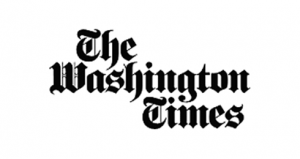
(This post originally appeared on The Washington Times)
This is not a great time to be a minority business owner.
The pandemic has hit these small businesses particularly hard. Back in June a study from the University of California warned that more than 40 percent of Black business owners “weren’t working” and even by the end of 2020, another analysis found that half (49 percent) of minority-owned businesses were unable to pay their December rent. Minority-owned businesses were “last in line” to receive either of the first two rounds of Paycheck Protection Program loans, with less than half of one-percent of Black business owners receiving government benefits as of the middle of the year.
So now the government, and many other organizations, are stepping up to help.
The latest round of the Paycheck Protection Program has put aside billions of dollars that are specifically targeted at business located in “Low to Moderate” Income Areas — defined as “a census tract as reported in the most recently completed decennial census published by the United States Bureau of the Census that has a poverty rate of at least 20 percent or in which the median family income does not exceed 50-80 percent of the greater of the statewide or metropolitan median family income.”
Businesses located in these areas, which tend to be minority-owned borrowers, are eligible for prioritized PPP loans of up to $250,000. In addition, $15 billion has been set aside for mission-based community lenders like community development financial institutions, certified development companies, minority depository institutions, and Small Business Administration Microloan intermediaries. Targeted grants of up to $10,000 are now available directly from the SBA for businesses located in LMI areas.
Big brands are also throwing money at minority-owned businesses.
Starbucks announced last week that it will invest $100 million to launch a new fund that will be focused on supporting small businesses and community development projects in areas of Black, indigenous and people of color. The money will be invested in Community Development Finance Institutions and other impact-focused financial institutions and will help provide access to capital intended to support small businesses and neighborhood projects, initially focusing on 12 U.S. metropolitan areas and their surrounding regions: Atlanta, Detroit, Houston, Los Angeles, Miami, Minneapolis, New Orleans, New York City, Philadelphia, San Francisco Bay Area, Seattle and Washington, D.C.
Also last week, Apple Corporation reported that it has already spent millions of last summer’s $100 million commitment to bring about racial equality and justice on learning centers, developer academies and targeted investments in “Black and brown entrepreneurs.”
A $400 million fund launched by Wells Fargo late last year is targeting Black, African American, Latino, Asian American, American Indian, and Alaska Native entrepreneurs. The James Beard Foundation, a New York City-based national non-profit culinary arts organization, is giving out eighteen $15,000 grants to food or beverage businesses that are majority-owned (51 percent and above) by Black or indigenous individuals — but hurry, as the application deadline closes on Jan. 22.
In San Diego, a COVID-19 Community Response Fund has granted an additional $300,000 to “uplift” Black, Latino and Asian businesses, and it’s distributing these funds through local organizations, including the Central San Diego Black Chamber of Commerce and the Asian Business Association of San Diego. In the Quad Cities area of Iowa and Illinois, a local organization is awarding $21,000 in grants to 23 minority-owned small businesses to go toward the purchase of equipment. A Virginia non-profit launched a new Minority Owned Small Business Grant Program with funding provided by Google and Kaiser Permanente.
The list goes on and I’m just naming a few. Minority-focused grant programs sponsored by companies, nonprofits and local governments have been springing up all over the country. Many accounting firms are providing volunteer assistance to those in need — all you need to do is visit their state associations to find out more. Many of the organizations mentioned above are funded to provide consulting and educational resources to help business owners through the application process.
All of that is there. So, if you’re a minority-owned business or located in one of the LMI areas, I must now offer some tough words: Step up. Considering the funding and resources available, you are irresponsible for not taking advantage … or even trying. Now is the time to act.
People and companies want to help and they are putting their money where their mouths are. But with all the power of Google, Wells Fargo and Starbucks, these giant brands can’t find you unless you make yourself known. They can’t spoon feed you and they can’t do this for you. It’s up to you, as a business owner, to take the initiative. So go online, pick up the phone, reach out to the organizations mentioned above — or search for other grants in your local area — and go through the process of getting what you deserve.
Your employees, your community, your family and all others who rely on your business for their livelihoods are depending on you to take action.

